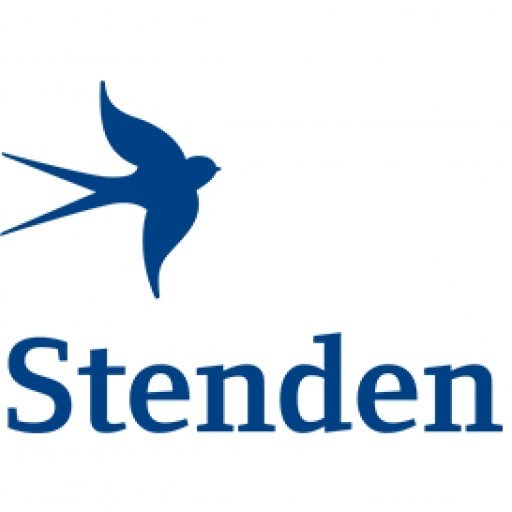Photos of university / #unioslo
Special Needs Education at the University of Oslo is a comprehensive program designed to equip students with the knowledge, skills, and competencies required to support and facilitate learning for individuals with diverse needs. This program emphasizes an inclusive approach, focusing on strategies to enhance educational participation and development for children, adolescents, and adults facing various challenges due to disabilities, learning difficulties, or other special needs. Through coursework, practical training, and research-based learning, students explore theoretical foundations of special education, adaptive teaching methods, and the ethical considerations involved in working with diverse populations. The curriculum covers areas such as psychology, pedagogy, communication strategies, assistive technologies, and law concerning education rights and accommodations. The program aims to prepare graduates for roles within schools, early childhood education centers, special education services, and related fields, where they can implement personalized interventions, support inclusion, and collaborate with interdisciplinary teams. Students also gain insights into policy development and how societal, cultural, and environmental factors influence the education of individuals with special needs. The University of Oslo is renowned for its emphasis on research and evidence-based practices, ensuring that graduates are equipped with up-to-date knowledge and innovative approaches. The program typically involves a combination of lectures, seminars, projects, and supervised internships or practica, providing practical experience aligned with academic learning. Graduates of the Special Needs Education program at the University of Oslo are well-prepared to contribute meaningfully to inclusive educational environments and to advocate for the rights and well-being of individuals with special needs throughout their professional careers.
The Master’s Programme in Special Needs Education at the University of Oslo is designed to equip students with comprehensive knowledge and practical skills necessary for supporting children, adolescents, and adults with diverse learning needs and disabilities. This programme explores the theoretical foundations and pedagogical strategies essential for creating inclusive learning environments that promote equal educational opportunities for all individuals. Students will engage with current research, policy frameworks, and evidence-based practices relevant to special needs education, gaining insight into various types of developmental and learning challenges, including intellectual disabilities, autism spectrum disorders, and sensory impairments.
Throughout the program, students will analyze the social, psychological, and environmental factors influencing learning processes and wellbeing among individuals with special needs. Emphasis is placed on developing personalized intervention plans, implementing adaptive teaching methods, and collaborating with families, caregivers, and multidisciplinary teams to achieve optimal outcomes. The curriculum includes courses on inclusive education policies, assessment and diagnostic techniques, assistive technologies, and ethical considerations in working with vulnerable populations.
Practical components of the programme involve placements in relevant educational or social services settings, where students can apply theoretical knowledge to real-world situations under supervision. This hands-on experience is complemented by seminars, workshops, and group projects that foster critical thinking, reflection, and professional development. Graduates of the programme are prepared for careers as special needs educators, advisors, or administrators, contributing to the development of inclusive schooling systems and social services that support diverse learning needs.
The programme also emphasizes the importance of cultural competence and sensitivity in delivering support to individuals from various backgrounds, ensuring that interventions respect cultural values and individual preferences. Upon completion, students will have a strong foundation to engage in research, policy development, and innovative practices aimed at improving educational accessibility and social inclusion for people with disabilities. The Master’s in Special Needs Education at the University of Oslo prepares graduates to become leaders in creating more equitable and inclusive educational environments.
The Master's degree program in Special Needs Education at the University of Oslo requires applicants to have a completed bachelor's degree or equivalent in education or a related field. Prospective students must demonstrate proficiency in English, typically through an approved test such as IELTS or TOEFL, unless they have completed prior studies in English. The program emphasizes theoretical understanding and practical skills necessary for working with students with diverse needs and disabilities across various educational settings. Entry requirements also include relevant work experience in the field of education or special needs support. The curriculum is designed to provide in-depth knowledge of inclusive education, learning theories, and pedagogical strategies tailored for students with special needs. Students are expected to engage in coursework, participate in seminars, and undertake a final thesis project that contributes to the field of special needs education. The program encourages interdisciplinary collaboration and includes both national and international perspectives on special education. Candidates should be prepared for full-time study, with opportunities for joint projects and fieldwork integrated into the curriculum. The university values diversity and inclusive practices, underscoring the importance of social justice and equal opportunities in education. Applicants are advised to review the specific admission criteria outlined on the university's official admissions webpage to ensure all prerequisites are met before applying. Supporting documentation such as transcripts, CV, and statement of motivation are typically required. The program aims to equip graduates with the competencies needed to develop inclusive learning environments, undertake individual assessments, and implement tailored interventions. Completion of the program qualifies graduates for a range of careers in educational institutions, government agencies, and NGOs working in the field of special needs education.
Funding for the Special Needs Education master's program at the University of Oslo is primarily provided through a combination of governmental support, student loans, and scholarships. Norwegian residents benefit from government funding schemes that subsidize higher education, allowing students to pursue their studies with minimal financial burden. Norwegian students are typically eligible for student loans and grants managed by the Norwegian State Educational Loan Fund (Lånekassen), which covers tuition fees and provides living allowances based on certain eligibility criteria. International students from the European Union/European Economic Area (EU/EEA) may have access to some funding options through bilateral agreements or partnerships; however, in many cases, they are responsible for covering their tuition fees and living expenses unless they are awarded scholarships. Non-EU/EEA students usually pay full tuition fees, which vary depending on the program and can be substantial, but funding opportunities such as university scholarships may be available. The University of Oslo offers a limited number of scholarships aimed at international students, including the UiO Global Campaign and other merit-based awards, which can help reduce the financial burden. Additionally, students may seek external funding sources, such as private foundations, educational grants, or employer-sponsored study leave programs, where applicable. Students are encouraged to explore funding opportunities early in their application process to plan their finances effectively. The university also provides guidance and resources to assist students in the application for loans, scholarships, and other funding programs. Overall, the financing of the Special Needs Education master's program is designed to be accessible primarily for Norwegian and EEA students through national support schemes and university scholarships, with international students needing to seek external funding or use personal resources.
Special Needs Education at the University of Oslo is a comprehensive program designed to equip students with the knowledge and skills necessary to support individuals with disabilities and special educational needs. The program focuses on inclusive education strategies, assessment techniques, and the development of tailored learning plans to ensure that all students receive equitable educational opportunities. Students are introduced to various disabilities, including cognitive, emotional, and physical impairments, and explore the social, psychological, and pedagogical aspects related to supporting these individuals in educational settings. The program emphasizes interdisciplinary approaches, drawing from psychology, pedagogy, social work, and healthcare, to prepare graduates for collaborative work environments. The curriculum includes coursework in special education theories, legislation concerning disability rights, and practical training through internships and fieldwork in diverse educational settings. Graduates of the program are prepared for roles such as special education teachers, educational consultants, and support staff within schools, universities, and community organizations. The program also encourages research and critical analysis of current practices in special needs education, fostering a reflective and innovative professional mindset. Students have access to state-of-the-art resources and are often involved in projects aimed at improving inclusion policies and practices within the Norwegian educational system. The University of Oslo's faculty members are experts in the field, providing mentorship and guidance to ensure that students are well-prepared for the challenges of working with individuals with diverse needs. The program typically spans over 2 years for a master's degree, with opportunities for specialization in particular areas such as early intervention, inclusive technology, or behavioral support. Overall, the Special Needs Education program at the University of Oslo aims to produce competent, empathetic professionals committed to promoting inclusive and accessible education for all learners, reflecting Norway's strong dedication to equality and social justice in education.









